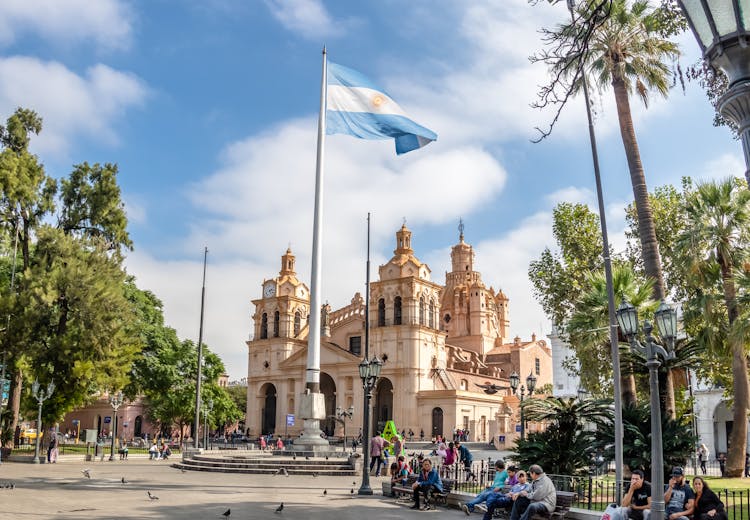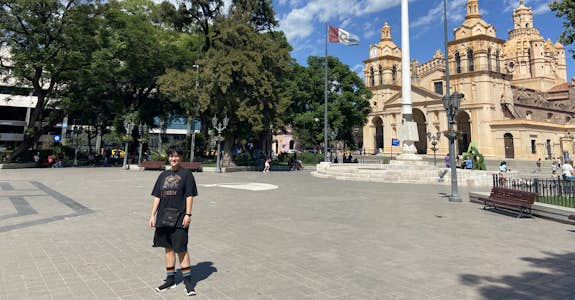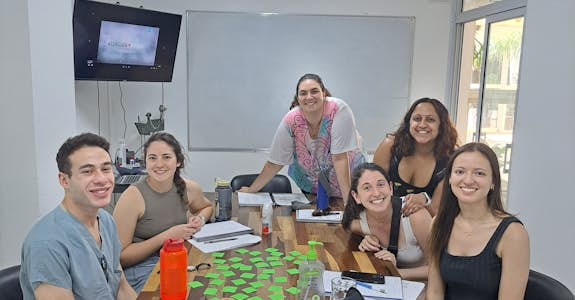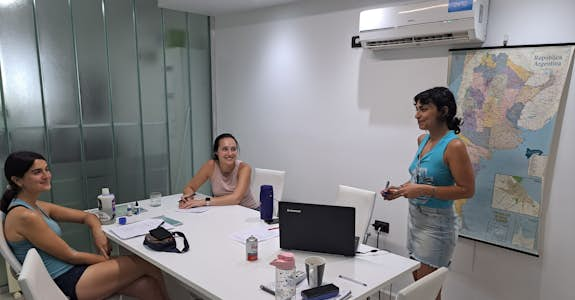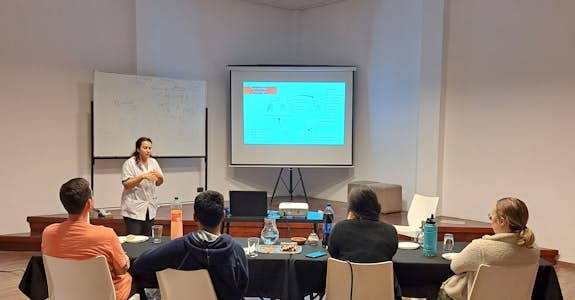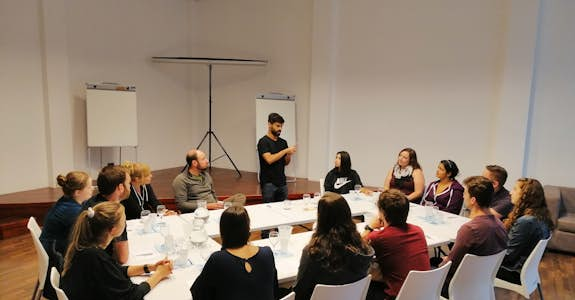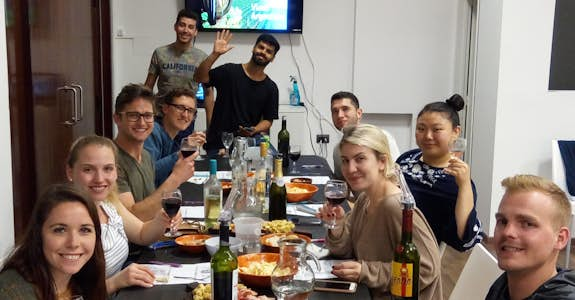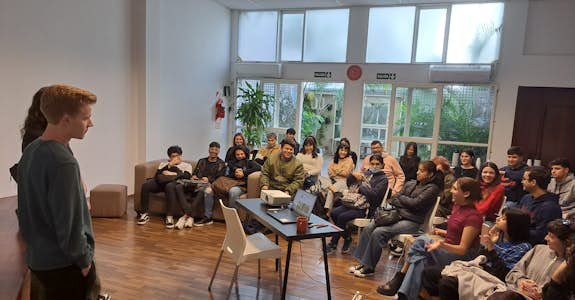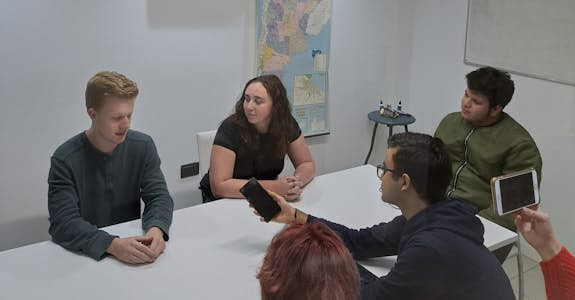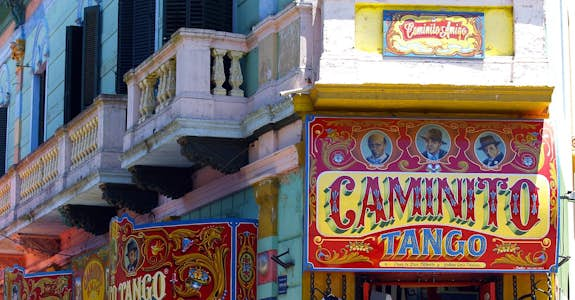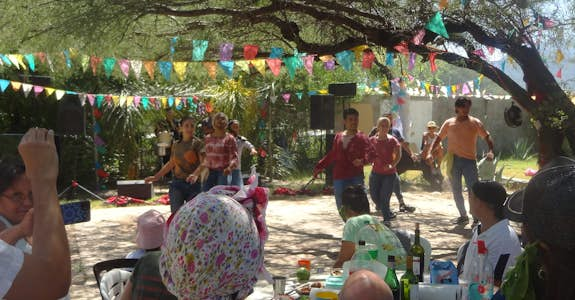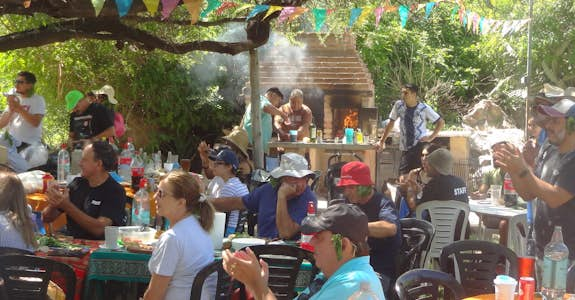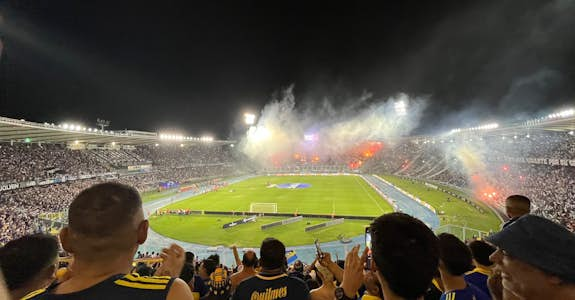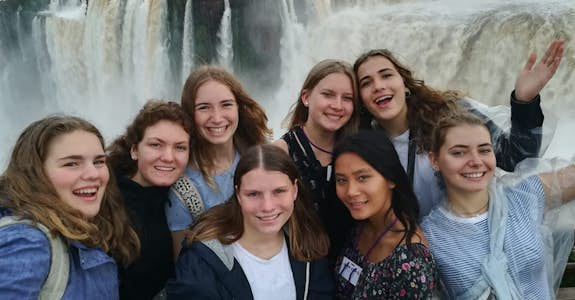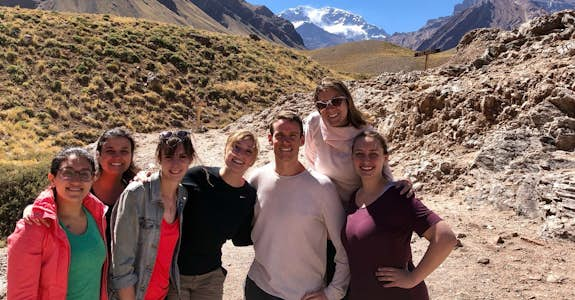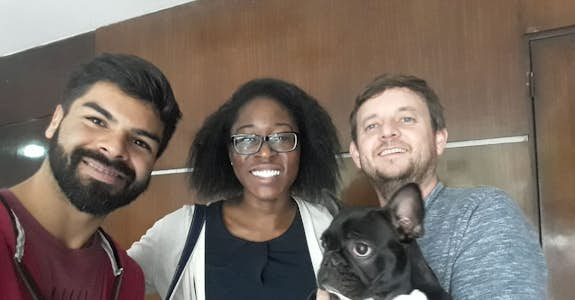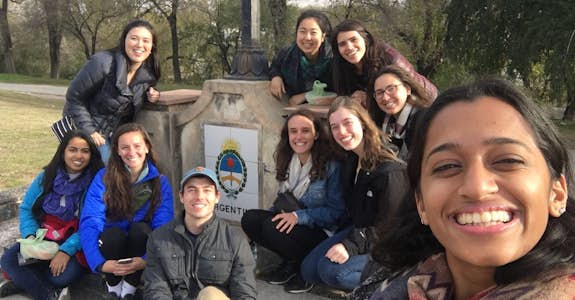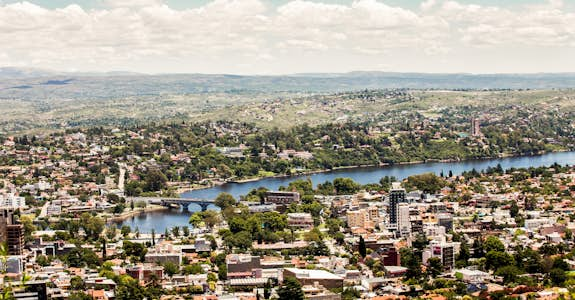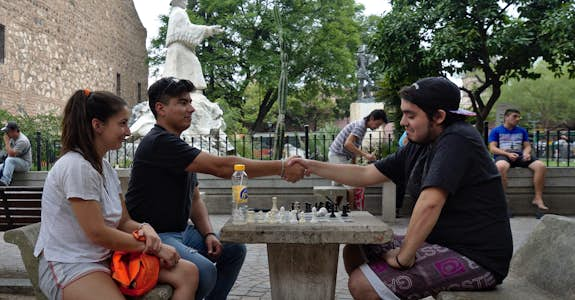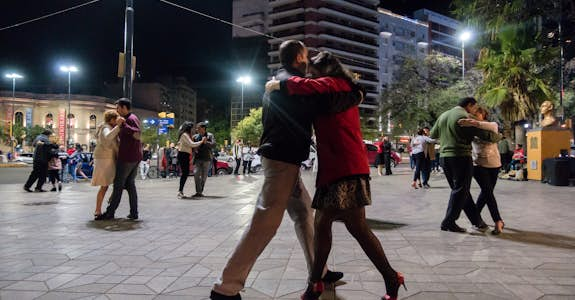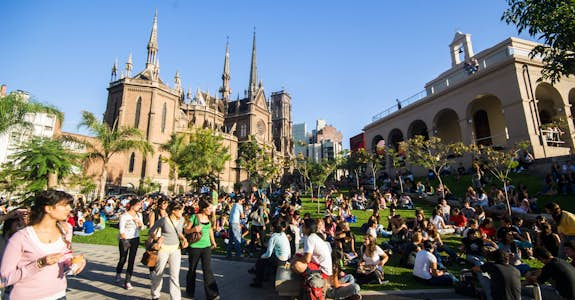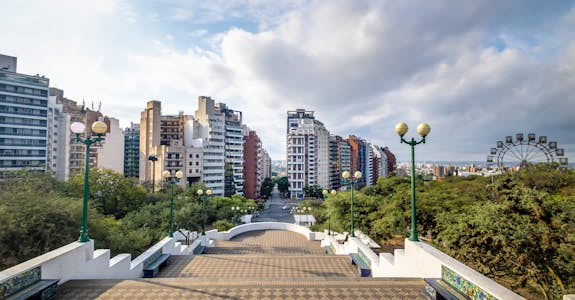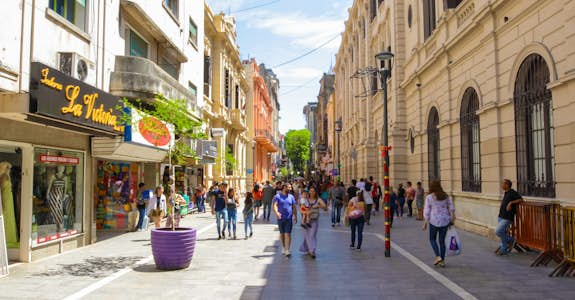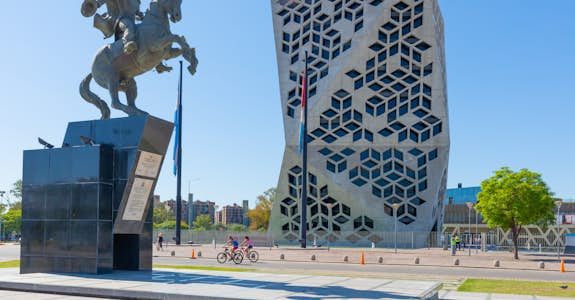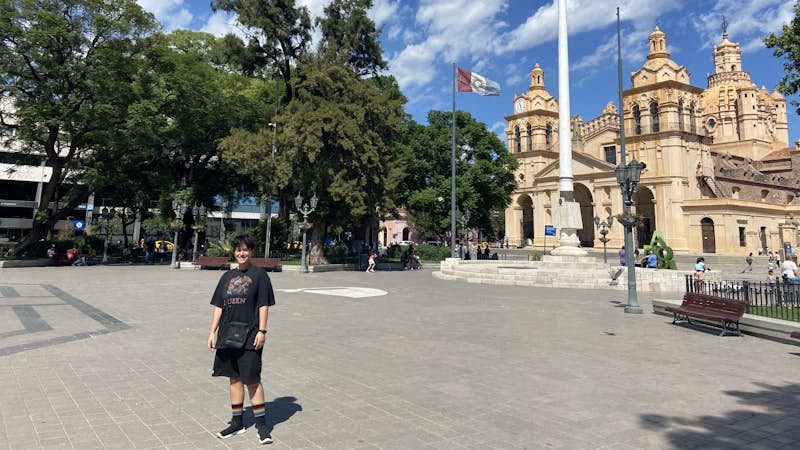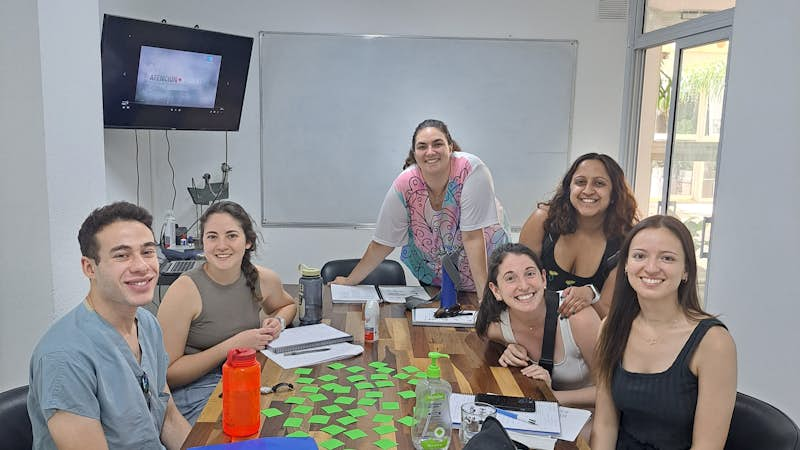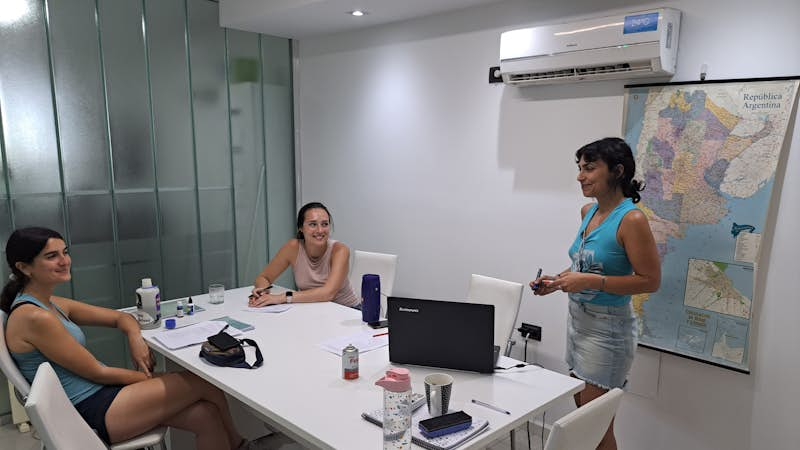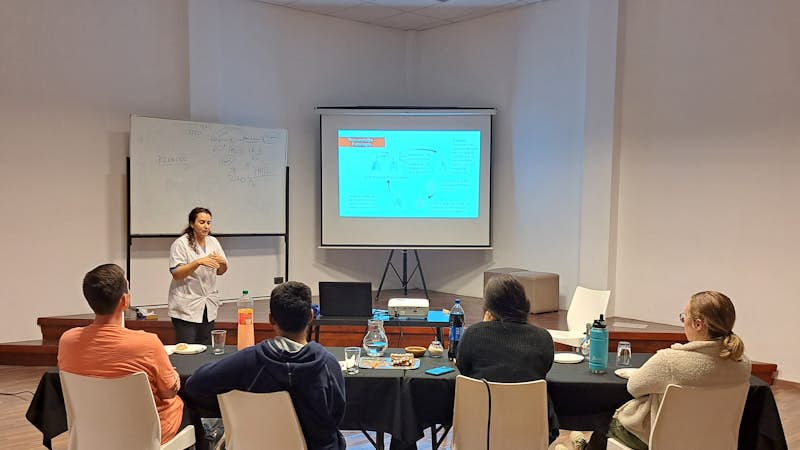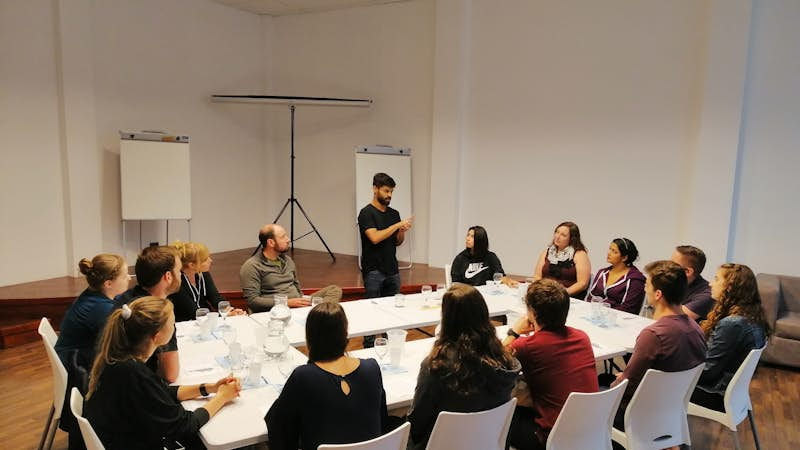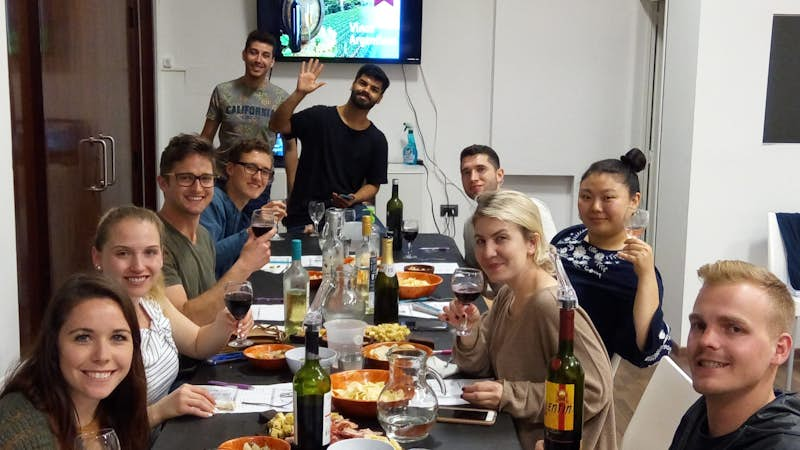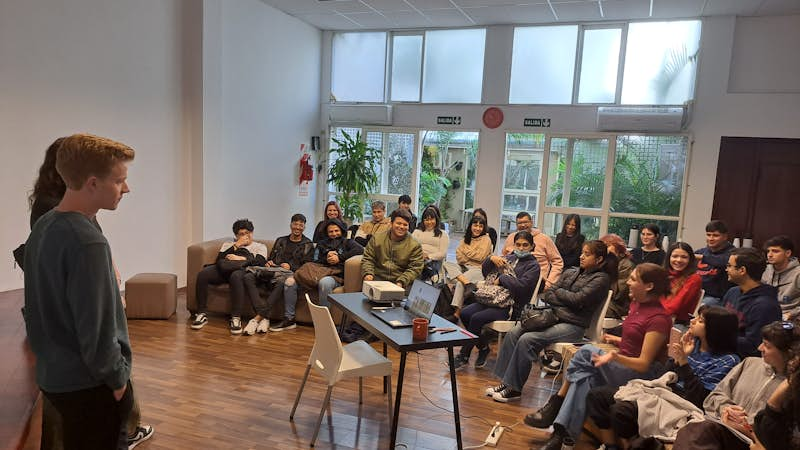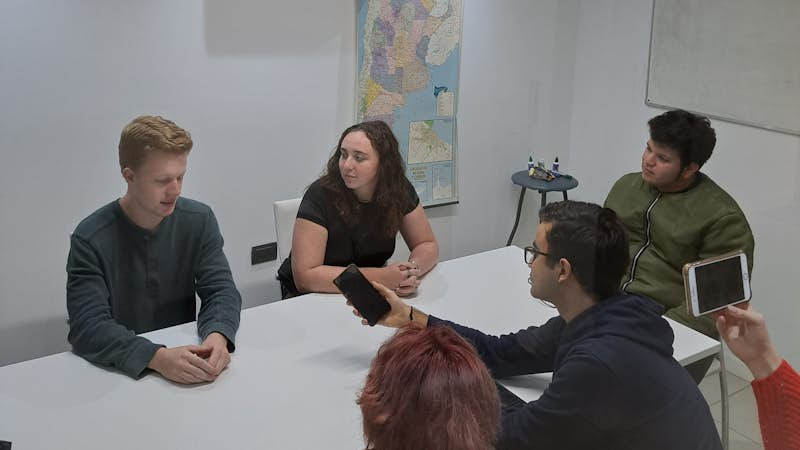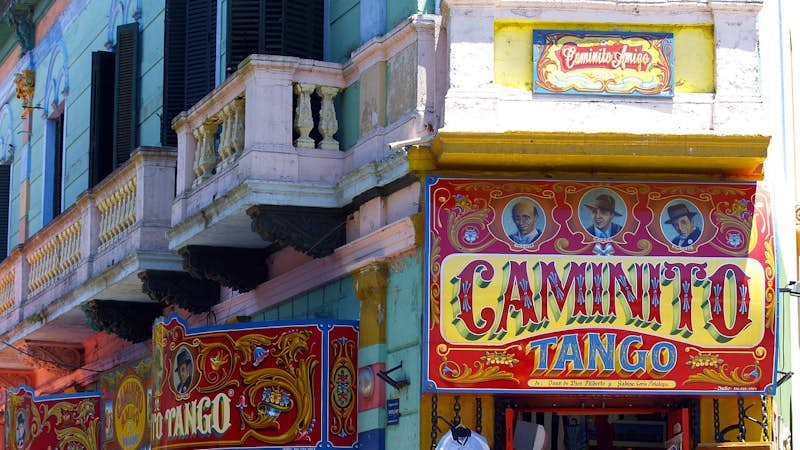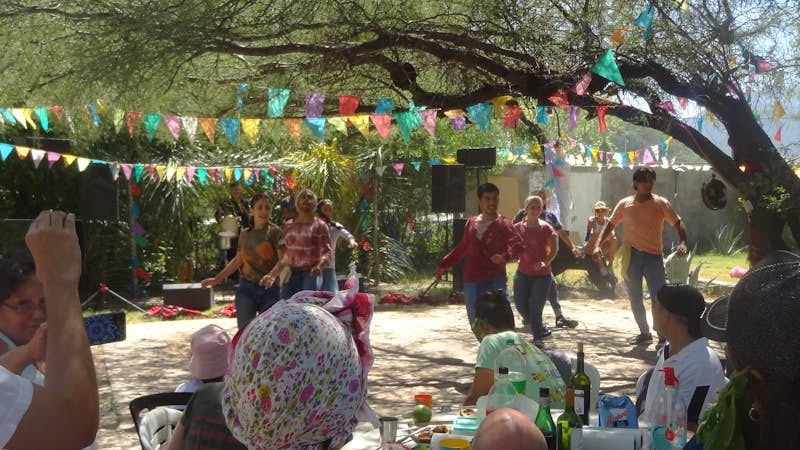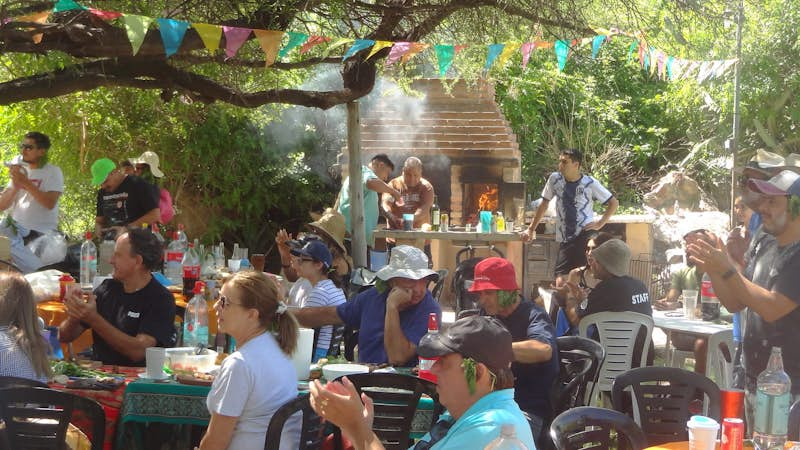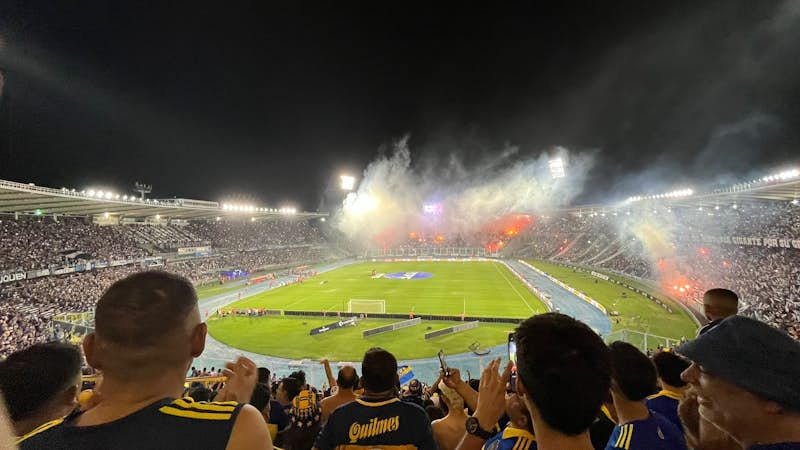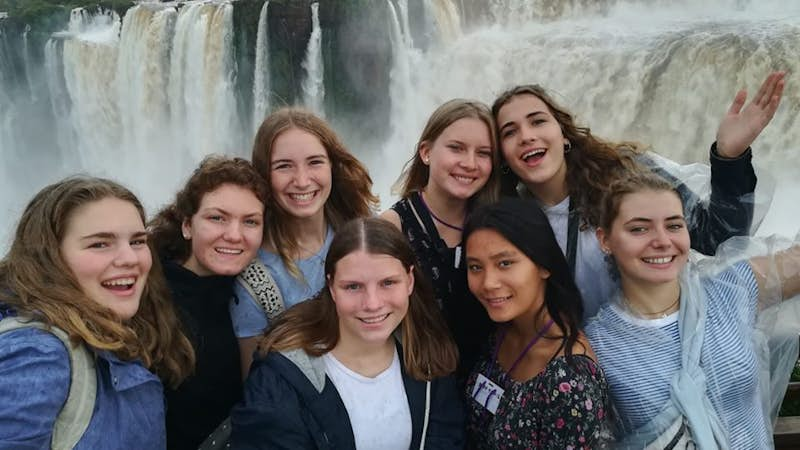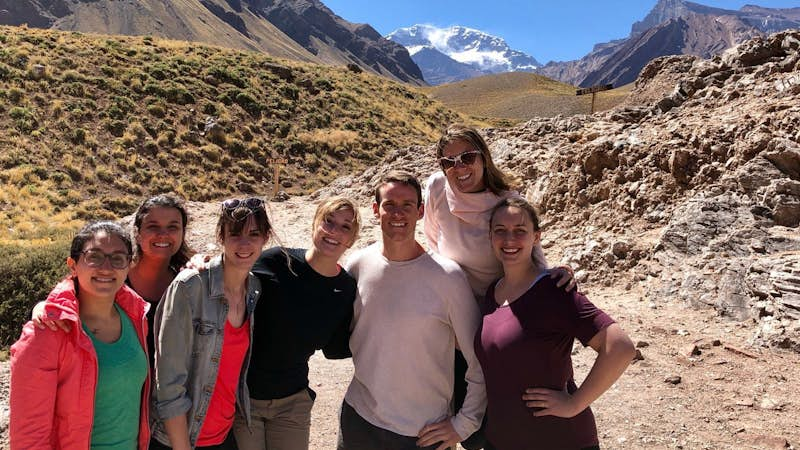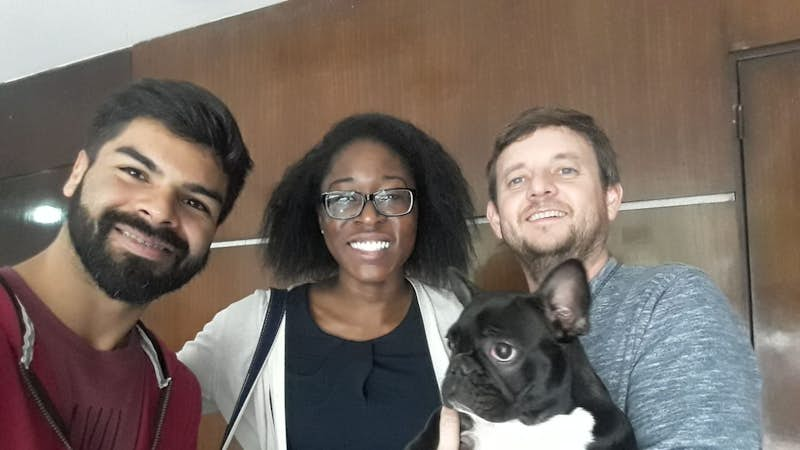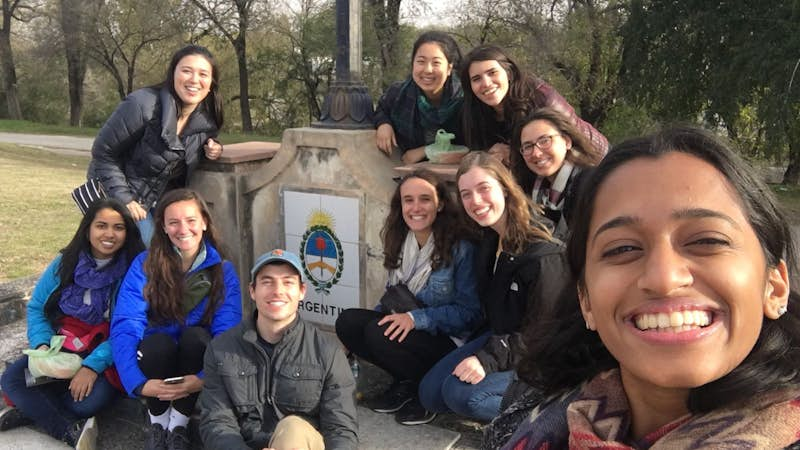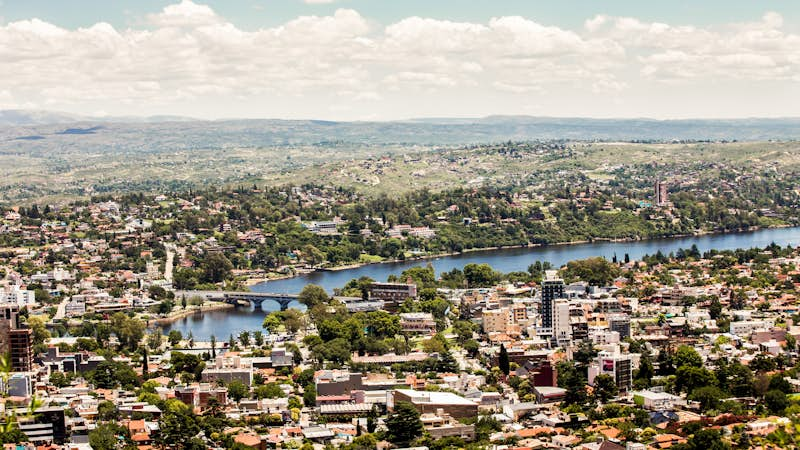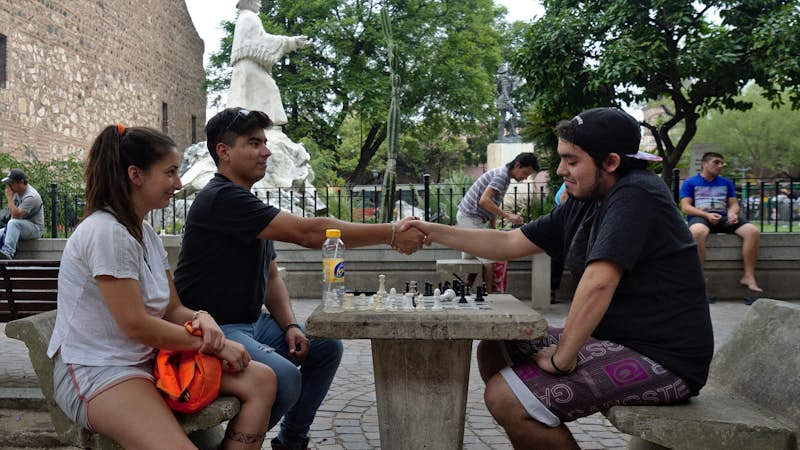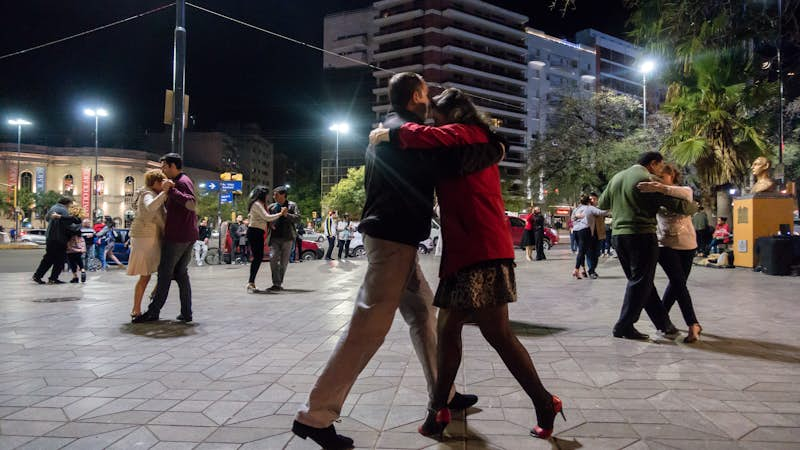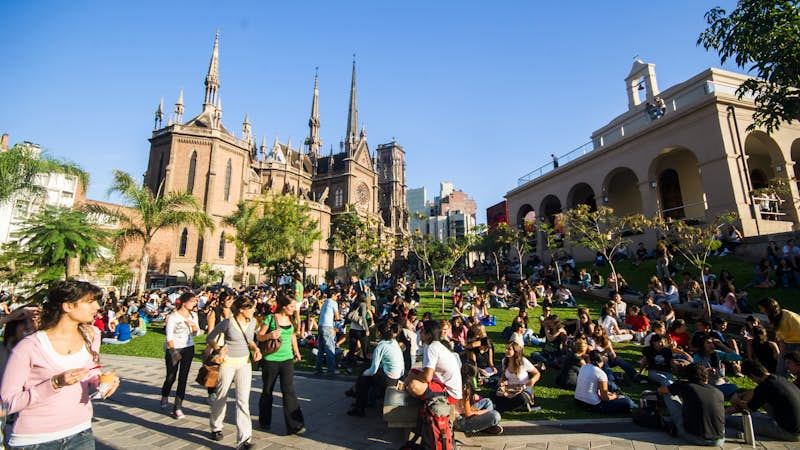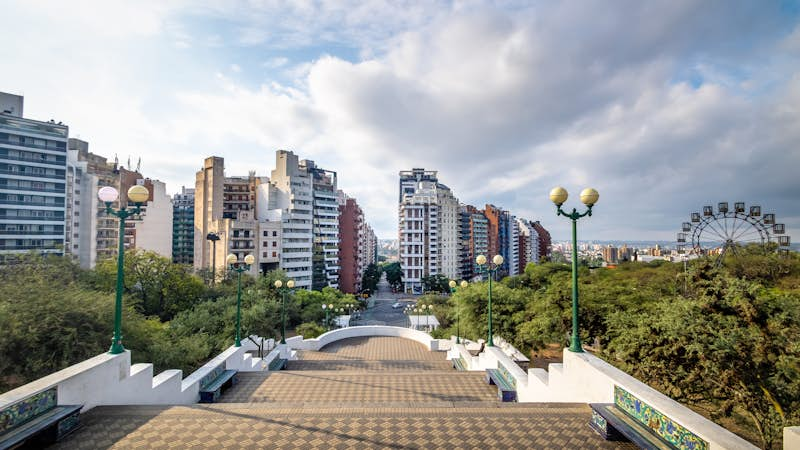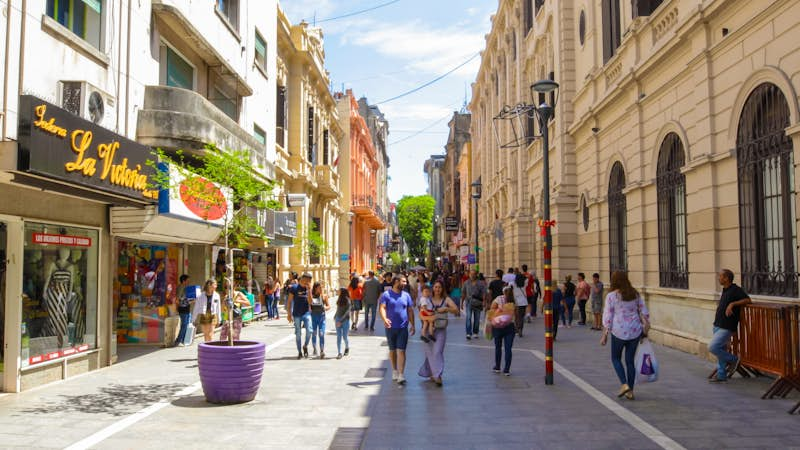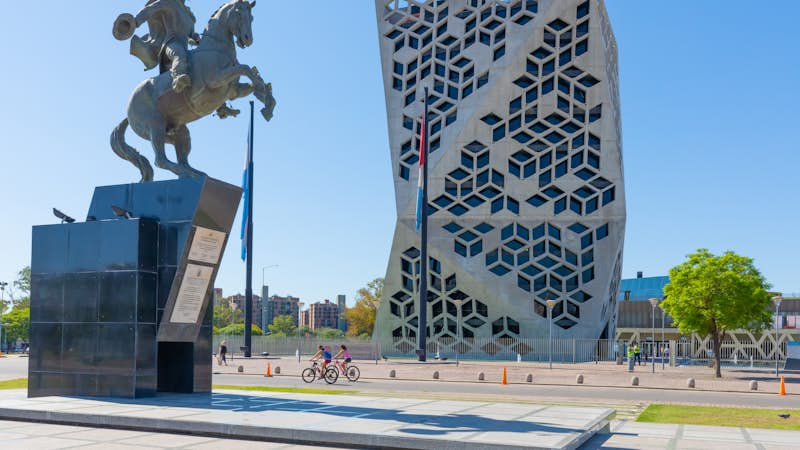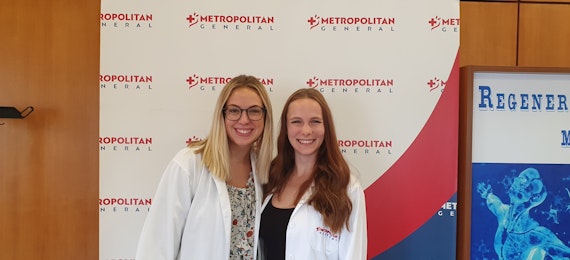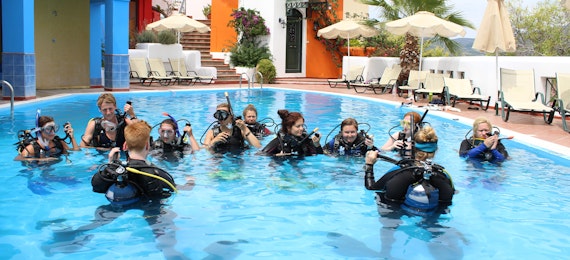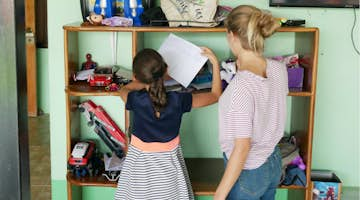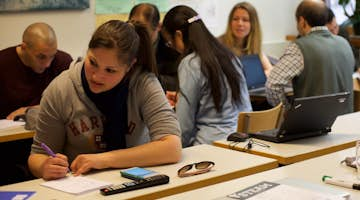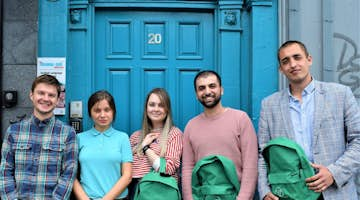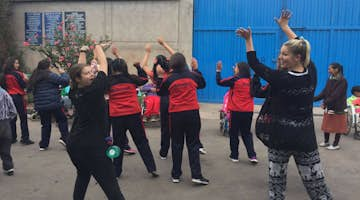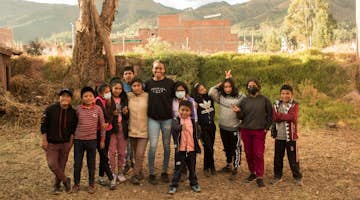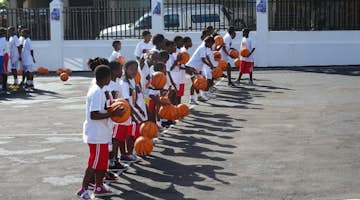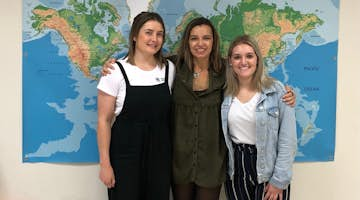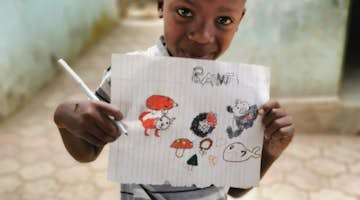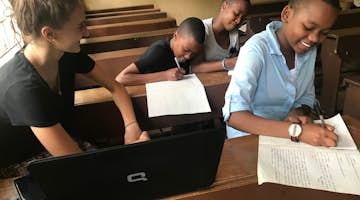
Education & Community Development Internships: Intern abroad in Cordoba, Argentina
With over 5,000 education providers and home to the Universidad Nacional de Córdoba (one of the oldest universities in South America, founded in1613), Cordoba, has earned the nickname La Docta (“the learned”). The city offers interns opportunity to immerse themselves, supporting local teachers while developing their Spanish language skills.
What to expect from your Education & Community Development internship:
- Gain a unique perspective into the local teaching practices.
- Acquire hands-on experience in the educational field, supporting experienced teachers.
- Develop your career as an educator, while providing valuable tools to the local community.
Your internship abroad host organization:
- Education providers
- Youth centers
- NGOs
Internship details
Orientation experience
Our local team in Cordoba offers interns exceptional support for their internship. You will spend your first week having a thorough orientation, before commencing your internship in the second week.
This comprehensive one-week orientation covers everything from cultural immersion and program logistics to Argentine history, food, and language. More importantly, it sets the tone for a warm, welcoming environment where interns feel confident, informed, and excited about what lies ahead. Interns have a much deeper understanding of the country, its cultural norms, and how to navigate the cross-cultural differences much more seamlessly.
Education & Community Development internship placements
Education & Community Development internship placements can include schools, community centers, NGOS, or other types of educational institutions, all offering opportunities to gain practical experience related to the educational sector.
Practical activities typically include working closely with the local teachers, helping them prepare the lessons and educational materials, assisting them in developing educational programs and carrying out their curriculum, as well as helping children with their homework and providing students with support.
In line with child safeguarding standards, interns must have the ability to provide a safe, supportive, and reliable presence. Interns will be required to tasks without impairment from any health condition that could reasonably compromise judgment, reliability, or the safety of others. This includes the ability to demonstrate sound judgment, uphold professional standards of dress, maintain emotional stability in a professional setting, and communicate clearly and respectfully. This will be strictly monitored by internship supervisors or other placement staff.
Do I need to speak Spanish for this internship?
All program coordinators speak English, but the supervisors at the internship placement may not necessarily have English language proficiency. Therefore, a minimum of a ‘high’ B1 level (intermediate to advanced) is required, as well as a genuine effort to interact with the Spanish language.
This internship program includes 20 hours of mandatory Spanish language lessons, which must be undertaken during the first orientation week. If you are already an intermediate or native Spanish language speaker, you may be permitted to skip the language lessons. However, this will be confirmed on-site, upon review of your ability.
Intercultural Competency Seminars
Internships in Argentina also include Intercultural Competency Seminars. These are conducted in Spanish but English language support is available, to ensure understanding. Topic examples include:
Work Culture - Placement Orientation - Workplace Presentation Tips
- Work protocol
- Work culture in Argentina and your home country
- Work relationships, hierarchy, and types of social interaction expected at the
workplace
Reflecting Inward - Developing Self-Awareness
- Identity: Four Layers of Identity
- Skills/Communication Styles
- Setting Goals
Cross-Cultural Adjustment
- Understanding Cross-Cultural Adjustment
- Going Beyond Surface Adjustment
- Understanding Culture Shock and the Stages of Adjustment
Strategies for Developing Intercultural Competence
- A Model of Intercultural Sensitivity
- Strategies for Making Cultural Inferences
- Discussion of Ethnocentric and Ethno-relative worldviews/cognitive dissonance and wellbeing (Conflict prevention)
Culture & Identity of Argentina
- The concept of “Argentinidad”: identity versus stereotypes
- Values, beliefs, attitudes of Argentinians
- Customs and etiquette, stereotypes
- What does being an Argentinian mean? Argentina: “work in progress”
- Sociopolitical and cultural phenomena in current Argentine life
Typical Schedule
-
Approximately Monday to Friday, 9am - 3pm. (the intern schedule includes placement hours as well as the Spanish language lessons and Intercultural Competency Seminars).
What are the career benefits of interning abroad as a Education & Community Development Intern?
Education & Community Development interns learn from a qualified and experienced supervisor, and can be involved in:
-
Preparing and developing class material and resources.
-
Assisting experienced teachers in developing educational programs.
-
Encouraging positive interactions amongst students.
-
One-on-one mentoring and support of students.
-
Assisting with after school or holiday programs.
Professional development opportunities:
-
Acquire experience running lessons and teaching students of all ages.
-
Learn about different teaching practices and methods.
-
Contribute creatively to help students reach their maximum potential.
-
Build your career with relevant teaching and mentoring skills.
-
Acquire a deeper understanding of education across a range of subjects.
-
Gain practical skills and boost your employability, with guidance from Intern Abroad HQ’s Experiential Learning Curriculum to support your learning and cultural intelligence.
Are you eligible for this internship?
Submit a free application so we can confirm your eligibility and check availability for your preferred dates.
Not sure which program to join?
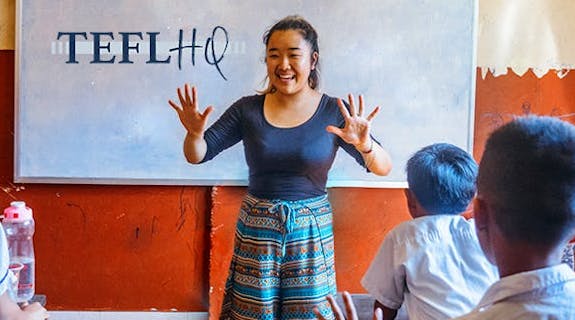
Recommended online TEFL course
For all interns with an interest in developing skills as an educator, we also recommend an interactive Online TEFL Certification Course. The training offers tools and techniques over a 100-hour program. Upon completion, you’ll have earned experience in planning, designing, and adapting diverse language activities and materials. No previous teaching experience or training is required. You can sign up for the Online TEFL Certification Course anytime and you’ll pay the discounted Intern Abroad HQ rate.
Get TEFL certified onlineArgentina photo gallery
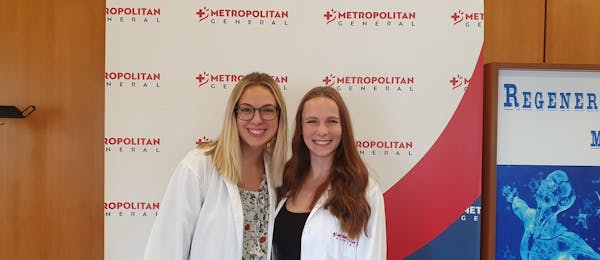
Academic credit available for all internships
Get course credit from your college or university while completing your internship abroad or a remote internship program. It's a great way to meet your academic requirements and gain valuable experience at the same time.
Learn about course creditProgram fees
Applying for our Education & Community Development Internship is completely free! The support package covers the assistance we provide in finding your internship and arranging your living accommodations in your host country, ensuring you thrive during your program.
Please note that a deposit of US$499 is required to confirm your place. The remaining balance (minus your initial US$499 deposit) is due at least 60 days before your internship start date.
Duration |
Program Fee |
|---|---|
| 6 weeks | $3,568 Equivalent to $84 /day |
| 8 weeks | $4,496 Equivalent to $80 /day |
| 10 weeks | $5,474 Equivalent to $78 /day |
| 12 weeks | $6,402 Equivalent to $76 /day |
| 16 weeks | $8,308 Equivalent to $74 /day |
| 20 weeks | $10,214 Equivalent to $72 /day |
| 24 weeks | $12,120 Equivalent to $72 /day |
- Airport pick-up
- Daily breakfast, lunch and dinner
- Spanish language lessons
- Intercultural Competency Seminars
- Accommodation
- 24/7 in-country support
- Program orientation
- Dedicated support before, during, and after your internship
- In-country guidance for social and tourist activities
- Sourcing and securing your internship placement
- Personalization of your internship plan
- Coaching from your supervisor
- Documented portfolio of your experiential learnings
- Academic credit facilitation
- International reference letter
- Certificate of Internship Completion
- All in-country transportation
- Transfer back to the airport at the end of your internship program
- Visa (if required), flights, travel insurance (mandatory), vaccinations, criminal background check
- Personal spending money for snacks, drinks, public transport, laundry, and leisure activities during your free time.
Spanish language lessons
With the exception of fluent or native Spanish language speakers, all interns are required to attend 20 hours of mandatory Spanish language lessons for the first week of their internship before commencing the internship placement in their second week. (As an exception, the Global Health internships include 30 hours). This is included in the program fee. Additional Spanish lessons are optional but recommended and are not included.
For interns at an A2 Spanish level, they will receive 40 hours of Spanish lessons over the first two weeks. Therefore, activities at the internship placement will commence from the third week onward, after completion of the language program first.
This approach is designed to enhance the enjoyment of being in South America, while developing professional social, and cultural competencies. While your internship can be conducted in some English, a language barrier can still be encountered to a certain extent. Interns should be prepared for the very natural and normal frustration of not always understanding what is being said around them. Most interns are able to have a successful internship experience and it is essential to come prepared and willing to surmount a language barrier, as opposed to being intimidated by it.
Weekends and travel
Outside of this program, interns have the truly enriching opportunity to experience the best that cultural immersion in Argentina has to offer, with excellent hosts. Whether attending Tango workshops, learning about first class vineyards and wines, visiting local museums or World Heritage Sites, this is a stunning destination and culture that will leave a lasting impression!
Maybe the rhythm of Cordoba’s famous cuarteto music will call to your feet, maybe you’ll forage for a flea market bargain, take a trip to the Che Guevara Museum, adventure in the mountains, try Argentina’s beloved Fernet and Coke or spend your time discovering the Jesuit Block. Maybe you’ll do it all and more, or just relax in a peaceful park and sip a coffee.
In any case there’s no shortage of things to see and do during your free time in Córdoba. But if it’s time for a change of scene, Córdoba’s central location means it’s easy to hop on a plane or jump in a car or bus and visit Argentina’s buzzy capital, Buenos Aires, or pay a visit to the Mendoza wine region or the city of Rosario. If the outdoors are your thing, there’s plenty of trekking, mountain climbing, and horseback riding to be had in the Córdoba region and nearby.
Arrival and Orientation
Internships in Argentina begin once per month, February through September. Interns may choose to spend a minimum of 4 weeks, up to a maximum of 24 weeks. Airport pick up, accommodation, and selected meals are included in the Program Fee.
-
The accommodation is covered from the Saturday night before the Monday start date. If you are traveling in Argentina prior to commencing the internship, we can alternatively arrange for you to be picked up from a pre-approved meeting point in Cordoba, on this date.
-
Most international flights arrive at Buenos Aires’ Aeropuerto Internacional Ministro Pistarini. To receive the airport pick up for this internship program, you must make your way to Cordoba. The Cordoba airport is the Ingeniero Aeronáutico Ambrosio L.V. Taravella International Airport, more commonly known as Pajas Blancas (COR). Pick up from this airport in Cordoba is included in the cost of the internship Program Fee. Upon arrival, interns will be met, greeted, and transferred to the homestay accommodation.
-
Interns are required to schedule the flight to arrive at Cordoba’s International Airport between 8am - 11pm, prior to your Monday start date. If you arrive earlier than 8am, you will be picked up at 8am, and if you arrive after 11pm you will need to find an alternative accommodation for that night, and get picked up the next day.
-
The internship orientation takes place during the first week, alongside Spanish language lessons. You will start your internship placement in the second week. The week-long orientation covers important onsite information, including general introductions, customs, rules and expectations, safety guidance, history, culture, food, travel opportunities, and more. This provides interns with a deep understanding of what to expect, thoroughly preparing you for the internship experience ahead!
-
The last night of the accommodation is calculated according to your arrival date. For example, if you arrive on the Sunday night before your Monday start date, then you would depart on the Sunday of your last week. If you arrive earlier, on the Saturday, then you will check out on the Saturday of your last week.
-
Extra nights of accommodation can be arranged in advance, if requested, and are subject to availability. Return transportation to the airport is not included in the internship program fee but local staff can assist you to make arrangements. Expect to budget approx. US$15 for private transportation (taxi only - not Uber). Local coordinators can assist you with transportation arrangements via the Cordoba Taxi Association.
Please note that all participants are advised not to book flights until they have first registered to confirm their internship placement.
Check what's required to visit Argentina
Check out the widget below to learn about the visa requirements for the Education & Community Development internship in Argentina, based on your country of residence.
Accommodation and WiFi
All interns in Cordoba are hosted in various homestay accommodations. These are all located in the downtown area, in middle-class neighborhoods, with convenient access to public transportation routes, and near to a variety of shopping and entertainment districts. Most homestays are situated in high-rise apartments, which is a common feature of urban living in Argentina. They are also located in close proximity to one another.
Interns will be provided with a public transportation pass with a small amount of money preloaded on the card. You will just need to add additional money to cover the cost of ongoing commutes throughout your stay. Most interns use the local bus to commute throughout the internship and you will need to cover the cost for this (approx. US$1.50 per day).
All homestays have fans and WiFi. To keep connected when out and about, you can also opt to purchase a local SIM card with data (you will need to ensure that your phone is unlocked for international use). The local team can assist you with this at the orientation, if need be.
Homestay accommodations may be mixed-gender. In most cases, individuals will be allocated a private bedroom within the homestay apartment. However, the availability of private rooms cannot be guaranteed, as these are subject to availability. Bedding is provided, but it is recommended that you bring your own towel and toiletries.
While homestays may accommodate up to 2 or 3 interns at a time, interns may also find that they are the sole participant at any given homestay depending on the size of the home. Guests must be prepared to share common living spaces, such as shared kitchen, living, dining, and bathroom areas. Requests for any exceptional accommodation arrangements (subject to availability) must be communicated in advance of the internship start date. For those seeking alternative arrangements, accommodation “upgrades” are available (at an additional cost) upon request (subject to availability).
Homestay accommodations provide international interns with an extra layer of support, while also providing a valuable opportunity to become immersed in the Argentine way of life, meeting local people, eating authentic cuisine, practicing Spanish, and engaging in typical customs. Argentinian hosts vary - accommodation hosts are not always standard, traditional families (e.g. mother-father-children). Rather, accommodation hosts may also include single-parent families, young couples, retired couples, Argentinian university students, older women (whose children have already grown up and left home), etc. All interns will be welcome to complete a “homestay family preference form” in advance, so that we can do our absolute utmost to accommodate you in the best possible way.
A weekly budget of US$60 per week should be sufficient for use of public transport, in addition to miscellaneous expenses, such as laundry, bottled water, snacks, etc.
Meals
Internships in Argentina include three meals per day provided by the host family. Homestays typically cook meals for their guests in the traditional ways of the country.
Breakfast may be served sometime between 7-9am. A typical Argentinian breakfast does not normally include food items like cereal, eggs, fruits, bacon, pancakes. Therefore, if you want to have a heavier breakfast, please budget independently to “top up” what you want to eat, according to personal preference.
Dinner is typically served later in the evening, usually between 9pm - 10pm. (Most restaurants are not open to serve dinner before 9pm and usually stay open until 1am or 2am).
You’ll find Argentine meals to be hearty and nutritious, but perhaps different from what you’re used to eating at home. In general Argentineans do not eat a lot of vegetables, cereal and fruits. If there are special snacks you like to have, please budget for them and take care of your own preferences independently.
Please be sure to let us know of any specific dietary requirements that you have in advance (i.e. allergies and intolerances). Be prepared to discuss this with the team in-country as well, and budget to supplement the meals that will be provided to you. Note that gluten free products and alternatives (such as gluten free breads, cereals, cookies, etc) can sometimes be more expensive to source, and you may not find certain brands that you’re used to. Meat is very commonly eaten in Argentina, so if you are a vegetarian or vegan, please feel free to discuss meal recommendations with the local team.
A weekly budget of approximately US$50 should be more than generous for covering extra snacks, treats, and drinks, as a supplement to what’s already going to be included for you. Meal prices for even a cheap restaurant will begin at around US$10.
Essential country information
| Capital | Buenos Aires |
| Population | 45.8 million |
| Languages | Spanish |
| Currency | Argentine Peso |
| Time zone | UTC−03:00 |
Weather and climate:
Like its topography, Argentina’s climate varies greatly. The climate ranges from subtropical in the north, to humid in the central regions, to sub-Antarctic in the south. If you are planning to travel around different regions of the country, make sure you check the weather forecast! Winter, from June to August, is the driest period of the year. The coldest months are June and July and the warmest month is January.
In Cordoba, where the internship program is based, there are four marked seasons and the climate is generally described as humid subtropical. It is moderated by the “Pampas winds”, which is the cold air originating in Antarctica.
The summer months are considered to be from late November through till early March. Heat waves are common and there can be frequent thunderstorms. During this season, the average daily high is above 66°F / 27°C. The hottest month of the year in Cordoba is January, with an average high of 86°F / 30°C and low of 66°F / 19°C. By late February or early March, nights start getting cooler.
The winter season runs from late May till early September, and brings average highs of 64°F / 18°C and lows of 39°F / 4°C. (Occasionally, there can be warm spikes during the winter time, when strong northwesterly winds bring dry, pleasant nights). The coldest month of the year in Cordoba is July.
